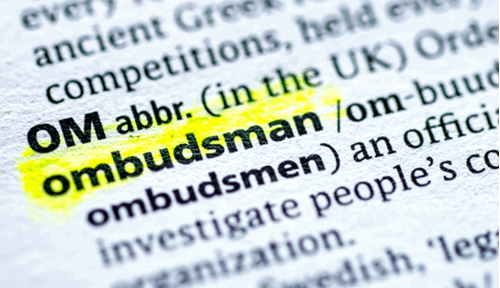No matter the size of your business, effectively resolving disputes is an important skill. There are numerous dispute resolution services available in the UK. This can be in the form of a more formal legal process or using a mediator to find common ground.
To avoid having to pay for a dispute resolution solicitor and having to go through legal proceedings in court, businesses can develop a more cost-effective approach by streamlining their process.
This article discusses how your company can find less time-consuming methods for resolving disputes than options such as court proceedings or employment tribunals.
What is the purpose of dispute resolution?
Put simply, dispute resolution resolves disputes between different parties. This could be through the use of an independent arbitrator, court judgments or mediation.
The sole aim is to help all sides find an agreement.
Importantly, a company that effectively manages a dispute resolution can avoid court action. This is particularly prevalent in cases of early conciliation. Whether you're a business owner looking to use trained mediators or you're looking to appoint an in-house dispute resolution team, Croner can help with the support of their expert dispute resolution advisors.

Using alternative dispute resolution to solve a problem
Any business might want to use dispute resolution to solve a problem. For all parties involved it is important to consider the costs and time implications of the options available.
Dispute resolution for everything from in-house disagreements to commercial disputes is a far less formal method than going to court. The term is used widely in commercial and private law and if done correctly it can be a simple process.
What can complicate dispute resolution?
Aside from dealing with different personality types and poor communication, the other main complication in dispute resolution is the method. The method by which a dispute can be resolved can be determined by a range of factors. These factors include:
- Costs (and who has to pay).
With workplaces around the UK adapting to things like working-from-home arrangements and changes to employment contracts it stands to reason that there are more areas where disputes can arise.
You can avoid complications by contacting Croner's team for expert advice on disputes. Our services will help you find the right outcome. Call Croner on 0800 141 3774.
Using alternative dispute resolution methods
Employers may be able to solve a problem using ADR (Alternative Dispute Resolution). ADR is a term used to define the method used to find common ground between parties without going to court.
In addition, because some ADR schemes involve a written agreement and can be legally binding, you can use ADR as a means to narrow down a problem prior to court action.

What are the advantages of ADR?
There are obvious advantages of ADR, including:
- It’s confidential.
- It’s more flexible.
- It can be less stressful than court proceedings.
- It is usually faster to get to a resolution.
- It is normally far cheaper than paying dispute resolution solicitors.
In the event that an ADR scheme involves a written agreement, this generally means it will be legally binding. Therefore, you won’t be able to take an employee to court if you mutually agree on an ADR decision and then change your mind.
What are the four main methods of ADR?
There are four main types of ADR methods. These include:
Some of these schemes may be offered to your clients by a trade association rather than by you directly.
Conciliation
In most cases, conciliation is the first port of call. This is because it’s the least formal way to resolve issues between parties and is often free. It’s a far less formal approach, for example, than arbitration.
If conciliation is the route you choose, this will involve the use of a conciliator who will attempt to find a way of resolving the dispute amicably. The conciliator will focus on what you and the other side want to achieve and try to reach an agreeable solution.
Should a problem arise between you and one of your consumers, you can stipulate that you require them to use your own conciliation service before any independent arbitration. In some cases, you may be able to charge for this service.
Is conciliation legally binding?
Employers can also choose to create a written agreement from conciliation which becomes legally binding if all parties sign.
Mediation
Mediation is another simple, less formal approach to dispute resolution. Like conciliation, a mediator will be able to focus on the issue at hand and try to consider the best approach for both parties.
A mediator can be in your employment, and the call falls into the remit of your human resources department. The mediator is not there to make a decision, they should have attended HR training courses to remain impartial.

Is mediation legally binding?
The minutes taken in a meeting using a mediator can be turned into a formal settlement agreement which can become legally binding.
Arbitration
If a dispute requires an independent decision, arbitration is the correct dispute resolution process. Arbitration utilises an arbitrator from the Chartered Institute of Arbitrators (CIArb) who will make a decision on the dispute.
Is arbitration legally binding?
Once an arbitrator makes a decision, this is legally binding. You would not be able to retrospectively take an employee or client to court if you don’t agree with the outcome.
What is the benefit of using arbitration?
The main benefit of arbitration is that in most cases there is no court hearing. Both sides are required to send in paperwork and evidence is presented by you and the other party. In some instances, you will only need to provide written evidence. This is why it is so important to carry out regular documentation reviews to ensure your papers are correct.

Ombudsman
If your company falls into sectors such as estate agents, retail services, financial companies, energy companies or telephone and internet providers, you will be familiar with ombudsmen. This is a paid facility for businesses, whereas it is free for consumers.
If your in-house dispute resolution processes are not robust then you may find an ombudsman will be required to intervene.
When would I need to use an ombudsman?
For example, if a client complaint has not been resolved in 8 weeks and you can’t agree on the next steps. In this instance, the ombudsman would consider how a decision was reached. The evaluation will consider whether or not there has been any injustice.
Is an ombudsman’s decision legally binding?
Depending on which sector you are in, an ombudsman can have more or less legal powers. A decision made by an ombudsman can be legally binding.
What happens if ADR doesn’t resolve the dispute?
If any of the ADR methods described do not resolve the dispute, the next step is litigation.
Litigation
Litigation is the formal legal process used by employers and employees to resolve a dispute. This process uses the civil legal system, and the matter is litigated. A dispute resolution is reached by both sets of dispute resolution solicitors following a set of rules applied by the courts. The pathway and speed at which the case proceeds are determined by the judge. This is followed by a final hearing.
Why is ADR preferred to litigation?
Simply put, litigation can be complex and time-consuming. As an employer, a better idea may be to find alternative dispute resolution methods.
In addition, ADR is far cheaper. Solicitors, barristers, courts, experts and judges are all involved in a small claims court and proceedings require expert advice and guidance.

Get dispute resolution support from Croner experts
Dealing with disputes and conciliations at work can be a potentially long-winded, stressful and sometimes costly process. We can offer you up-to-date advice, guidance and support to help you navigate through the process with confidence whilst remaining legally compliant, allowing you to focus back on what you do best - growing your business.
Call Croner on 0800 141 3774
Related resources
Categories
- Business Advice
- Contracts & Documentation
- Culture & Performance
- Disciplinary & Grievances
- Dismissals & Conduct
- Employee Conduct
- Employment Law
- End of Contract
- Equality & Discrimination
- Health & Safety
- Hiring & Managing
- Leave & Absence
- Managing Health & Safety
- Moving
- Occupational Health
- Pay & Benefits
- Recruitment
- Risk & Welfare




